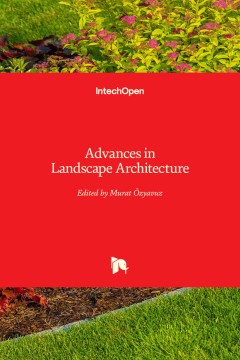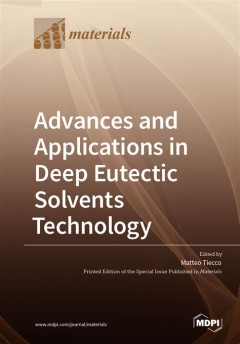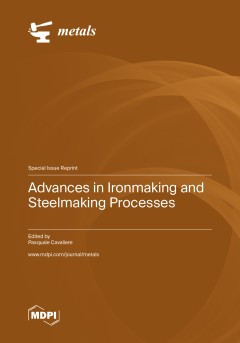Filter by

Advances in Landscape Architecture
Landscape architecture is the design of outdoor and public spaces to achieve environmental, socio-behavioral, and/or aesthetic outcomes. It involves the systematic investigation of existing social, ecological, and geological conditions and processes in the landscape, and the design of interventions that will produce the desired outcome. The scope of the profession includes: urban design; site p…
- Edition
- -
- ISBN/ISSN
- 9789535153818
- Collation
- oer.unej.ac.id
- Series Title
- -
- Call Number
- -

Advances in Knee Surgery
In the orthopedic surgical field, knee surgeries, including articular cartilage repair procedures, meniscus surgery, ligament reconstruction surgery, osteotomy surgery, and partial/total knee arthroplasty surgery, have made great advances over the last few decades. This Special Issue highlights and focuses on the surgical concepts and techniques, decision-making processes, perioperative managem…
- Edition
- -
- ISBN/ISSN
- 9783036596099
- Collation
- oer.unej.ac.id
- Series Title
- -
- Call Number
- -

Advances and Applications in Deep Eutectic Solvents Technology
This reprint reports advances in the topic of Deep Eutectic Solvents regarding their use as green alternatives in different chemical applications. Studies on the extraction/preconcentration processes of pharmacologically relevant molecules, structural spectroscopic studies, and application in gas purification studies are reported. Two relevant reviews are also published in the context of carbon…
- Edition
- -
- ISBN/ISSN
- 9783036535647
- Collation
- 104 hlm; ill., lamp.,
- Series Title
- -
- Call Number
- -

Advances in Ironmaking and Steelmaking Processes
In recent years, ironmaking and steelmaking have witnessed the incorporation of various new processes and technologies that can be operated and organized in different combinations depending on the properties of raw materials and the required quality of the final products. Indications from the steel industry and local and global government institutions suggest that the breakthrough technologies …
- Edition
- -
- ISBN/ISSN
- 9783036575490
- Collation
- oer.unej.ac.id
- Series Title
- -
- Call Number
- -

Advancements in the Practical Applications of Agents, Multi-Agent Systems and…
The relationship between individuality and aggregation is an important topic in Complex Systems Science, as both aspects are facets of emergence. This problem has generally been addressed by adopting a classical individual- versus population-level approach, in which boundaries emerge in segregated communities. More specifically, boundaries delimiting and interconnecting aggregates are at play. …
- Edition
- -
- ISBN/ISSN
- 9783036593081
- Collation
- 330 hlm; ill., lamp.,
- Series Title
- -
- Call Number
- -

Advancements in Technology-Based Assessment: Emerging Item Formats, Test Desi…
This eBook is a collection of articles from a Frontiers Research Topic. Frontiers Research Topics are very popular trademarks of the Frontiers Journals Series: they are collections of at least ten articles, all centered on a particular subject. With their unique mix of varied contributions from Original Research to Review Articles, Frontiers Research Topics unify the most influential researcher…
- Edition
- -
- ISBN/ISSN
- 9782889635061
- Collation
- X, 275 hlm; ill., lamp.,
- Series Title
- -
- Call Number
- -

Advancements in Sports Medicine
This reprint focuses on the current progress in sports medicine, with a specific interest in surgery, exercise therapy, and multi-disciplinary research. With the advancement of society, more attention is paid to the quality of life, which emphasizes the importance of sports and exercise. Correspondingly, there is a great need for sports medicine. This issue collected novel findings on sports me…
- Edition
- -
- ISBN/ISSN
- 9783036580258
- Collation
- 162 hlm; ill., lamp.,
- Series Title
- -
- Call Number
- -

Advances in Intelligent Vehicle Control
This book is a printed edition of the Special Issue Advances in Intelligent Vehicle Control that was published in the journal Sensors. It presents a collection of eleven papers that covers a range of topics, such as the development of intelligent control algorithms for active safety systems, smart sensors, and intelligent and efficient driving. The contributions presented in these papers can se…
- Edition
- -
- ISBN/ISSN
- 9783036560106
- Collation
- oer.unej.ac.id
- Series Title
- -
- Call Number
- -

Activists in the Data Stream
Available Open Access digitally under CC-BY-ND licence This book pulls back the curtain on the link between technology and activism. It explores the intricate ways activists from Italy, Spain and Greece interact with data on a day-to-day basis and shows how they navigate the impact of digital media on today’s grassroots politics. It is an invaluable contribution to our understanding of how mo…
- Edition
- -
- ISBN/ISSN
- 9781529239638
- Collation
- oer.unej.ac.id
- Series Title
- -
- Call Number
- -

Activist New York
Follows centuries of New York activism to reveal the city as a globally influential machine for social change Activist New York surveys New York City’s long history of social activism from the 1650’s to the 2010’s. Bringing these passionate histories alive, Activist New York is a visual exploration of these movements, serving as a companion book to the highly-praised Museum of the City of…
- Edition
- -
- ISBN/ISSN
- 9781479828654
- Collation
- oer.unej.ac.id
- Series Title
- -
- Call Number
- -
 Computer Science, Information & General Works
Computer Science, Information & General Works  Philosophy & Psychology
Philosophy & Psychology  Religion
Religion  Social Sciences
Social Sciences  Language
Language  Pure Science
Pure Science  Applied Sciences
Applied Sciences  Art & Recreation
Art & Recreation  Literature
Literature  History & Geography
History & Geography